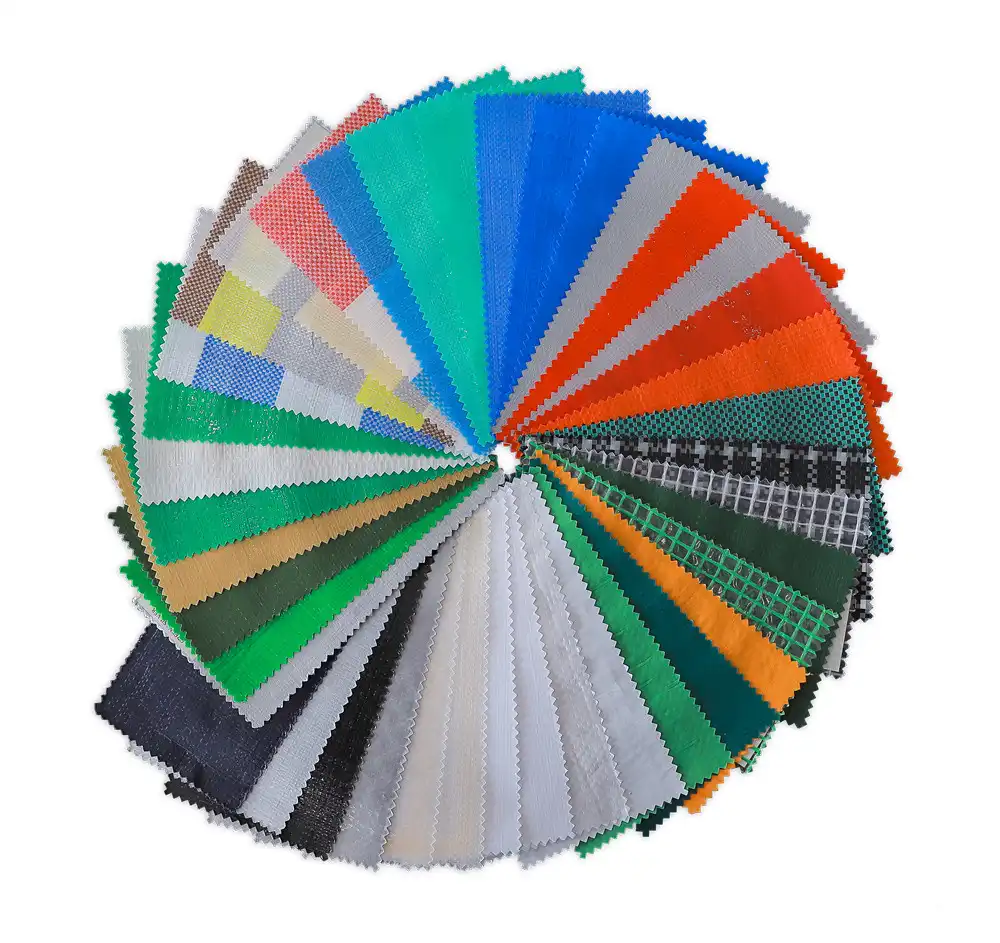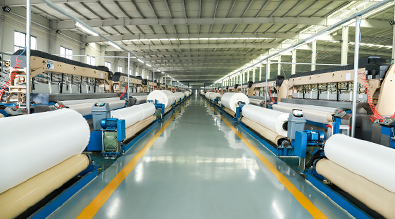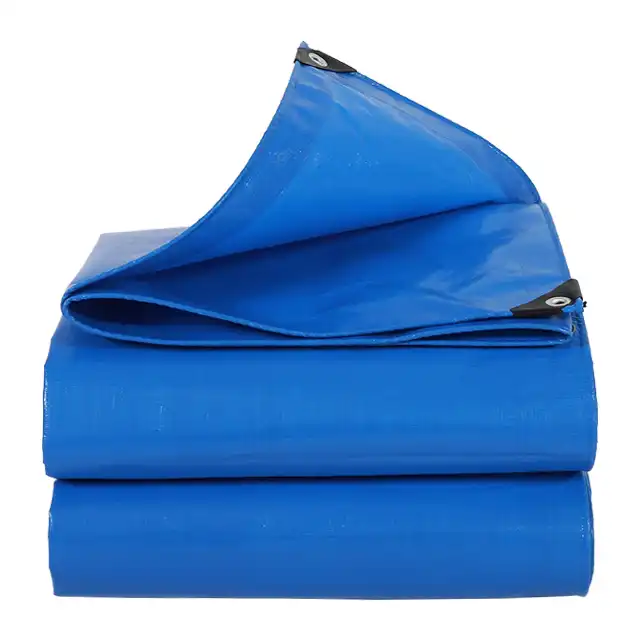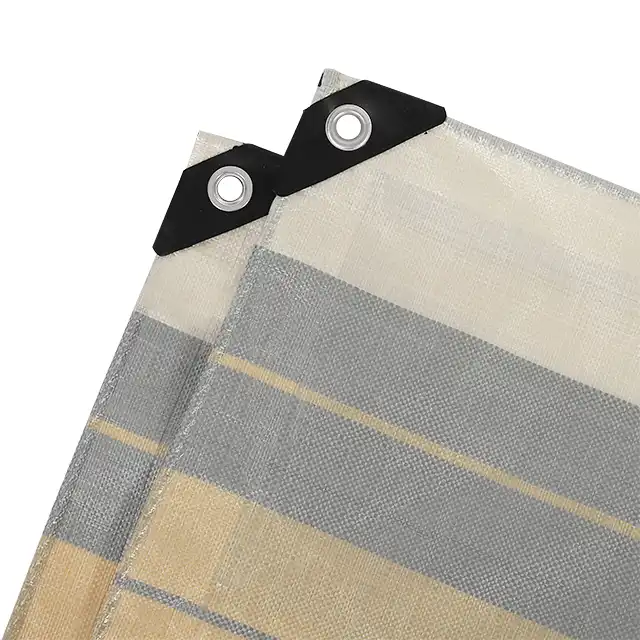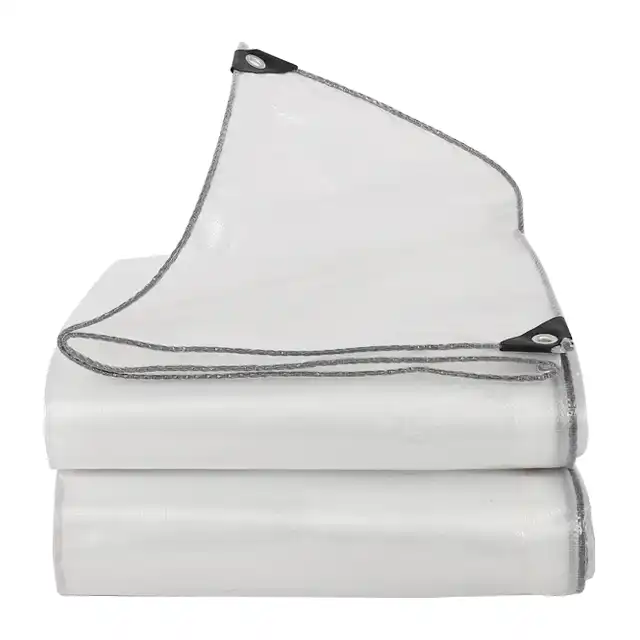5 Things to Check Before Buying a Tarpaulin Online
Picture this scenario: you urgently need a reliable tarpaulin to protect your construction materials from an incoming storm, or perhaps you require waterproof coverage for your outdoor equipment. You rush online, find what appears to be the perfect tarpaulin at an attractive price, only to receive a flimsy sheet that tears within days. This frustrating experience highlights why knowing exactly what to check before buying a tarpaulin online is crucial for making the right investment. Whether you're a contractor, farmer, or homeowner, understanding these five essential factors will save you time, money, and countless headaches while ensuring you get a high-quality tarpaulin that meets your specific protection needs.
Material Quality and Construction Standards
-
Understanding Polyethylene Tarpaulin Composition
 When purchasing a tarpaulin online, the material quality stands as the most critical factor determining its performance and longevity. High-quality PE tarpaulins are manufactured using high-density polyethylene (HDPE) woven fabric with low-density polyethylene (LDPE) coating on both sides. This dual-layer construction provides exceptional strength and waterproofing capabilities. Professional-grade tarpaulins feature tightly woven polyethylene fibers that are laminated on both sides, creating a durable barrier against harsh environmental conditions. The weaving process involves creating a mesh structure, typically ranging from 10x10 to 14x14 mesh count, which determines the fabric's density and strength. Premium tarpaulins utilize high-strength yarn that provides enhanced UV protection against harmful sun rays and prevents fading over extended periods.
When purchasing a tarpaulin online, the material quality stands as the most critical factor determining its performance and longevity. High-quality PE tarpaulins are manufactured using high-density polyethylene (HDPE) woven fabric with low-density polyethylene (LDPE) coating on both sides. This dual-layer construction provides exceptional strength and waterproofing capabilities. Professional-grade tarpaulins feature tightly woven polyethylene fibers that are laminated on both sides, creating a durable barrier against harsh environmental conditions. The weaving process involves creating a mesh structure, typically ranging from 10x10 to 14x14 mesh count, which determines the fabric's density and strength. Premium tarpaulins utilize high-strength yarn that provides enhanced UV protection against harmful sun rays and prevents fading over extended periods.
-
Construction Features That Matter
The construction methodology significantly impacts a tarpaulin's durability and effectiveness. Quality tarpaulins incorporate reinforced edges and corner grommets made from rust-resistant materials. The heat-sealing process used in manufacturing ensures seamless joints that prevent water penetration and maintain structural integrity. Advanced manufacturing facilities employ multiple coating machines and precision-controlled processing lines to maintain consistent thickness and quality throughout the fabric. When evaluating online listings, look for specifications that mention laminated construction, reinforced seams, and professional-grade heat sealing. These features distinguish commercial-quality tarpaulins from inferior alternatives that may appear similar but lack the structural integrity needed for demanding applications.
Weight and Thickness Specifications
-
Decoding GSM and Mil Measurements
Understanding tarpaulin weight and thickness specifications is essential for selecting the appropriate product for your specific needs. Tarpaulin weight is typically measured in grams per square meter (GSM), ranging from lightweight 65gsm options for temporary applications to heavy-duty 280gsm products for industrial use. The thickness measurement, expressed in mils (thousandths of an inch), typically ranges from 7 to 12 mils for standard applications. Medium-duty PE tarpaulins usually fall within the 100gsm to 180gsm weight range, providing an excellent balance between durability and handling convenience. These specifications directly correlate with the tarpaulin's tear resistance, puncture strength, and overall longevity. When reviewing online product descriptions, ensure these measurements are clearly stated, as reputable manufacturers always provide detailed specifications.
-
Matching Weight to Application Requirements
Different applications require specific weight categories to ensure optimal performance and cost-effectiveness. Lightweight tarpaulins (65-100gsm) are suitable for temporary weather protection, equipment covers, and indoor applications where heavy-duty strength isn't required. Medium-duty options (100-180gsm) excel in construction applications, truck covers, and general outdoor protection where moderate durability is essential. Heavy-duty tarpaulins (180-280gsm) are designed for industrial applications, long-term outdoor exposure, and situations requiring maximum puncture and tear resistance. The thickness measurement directly influences the tarpaulin's ability to withstand environmental stresses, with thicker materials providing superior protection against UV radiation, temperature fluctuations, and mechanical damage.
Size and Customization Options
-
Standard Dimensions and Custom Sizing
Accurate size selection prevents common problems associated with inadequate coverage or excessive material waste. Standard tarpaulin sizes typically range from small residential applications to large industrial covers measuring up to 5 meters in width without joints. Professional manufacturers offer roll widths up to 5.1 meters and can provide custom sheet sizes upon request. When purchasing online, carefully measure your coverage area and add appropriate margins for securing and overlap. Consider factors such as wind conditions, securing methods, and potential expansion needs when determining size requirements. Custom sizing capabilities indicate a manufacturer's flexibility and production capacity, often reflecting their commitment to meeting specific customer requirements rather than limiting options to standard configurations.
-
Color and Aesthetic Considerations
While functionality remains paramount, color selection can impact both performance and aesthetic appeal. Different colors offer varying levels of UV reflection, with lighter colors typically providing better heat reflection and extended material life. Standard color options include blue, green, white, silver, and yellow, each serving specific practical purposes. Some manufacturers offer custom color matching services, allowing integration with existing equipment or corporate branding requirements. Color consistency across large orders indicates quality control standards and professional manufacturing processes. When evaluating online suppliers, consider their color range and customization capabilities as indicators of their manufacturing sophistication and customer service commitment.
Performance Features and Certifications
-
Essential Performance Characteristics
High-quality tarpaulins must demonstrate specific performance characteristics to justify their investment value. Waterproofing represents the fundamental requirement, with professional-grade tarpaulins achieving 100% waterproof ratings through proper material selection and construction techniques. Tear resistance prevents progressive damage from wind stress and contact with sharp objects. UV treatment, typically ranging from 1% to 7%, extends material life by preventing degradation from prolonged sun exposure. Additional performance features include anti-freezing properties for cold climate applications, anti-corrosion resistance for chemical environments, and shrink-proof construction that maintains dimensional stability across temperature ranges. Arctic flexibility ensures material remains pliable in extreme cold conditions, preventing cracking and brittleness.
-
Quality Certifications and Standards
Reputable manufacturers maintain quality certifications that validate their production standards and product consistency. ISO 9001:2015 certification demonstrates comprehensive quality management systems covering all aspects of production, from raw material procurement to final product delivery. Third-party testing laboratory reports provide independent verification of performance claims, including tensile strength, tear resistance, and waterproofing effectiveness. When evaluating online suppliers, look for clear certification statements and willingness to provide detailed test reports. Established manufacturers often maintain partnerships with international organizations, indicating their ability to meet stringent quality requirements for humanitarian and industrial applications.
Supplier Reputation and Manufacturing Capabilities
-
Evaluating Manufacturing Infrastructure
The supplier's manufacturing capabilities directly impact product quality, delivery reliability, and customer service quality. Advanced production facilities feature multiple specialized equipment types, including high-tech extruding machines for yarn production, Korea-imported automatic water-jet looms for fabric weaving, and large-scale coating machines for material finishing. Production capacity indicators include daily output capabilities, typically measured in tons, and the number of processing lines dedicated to finished product assembly. Skilled workforce size and training levels influence product consistency and quality control effectiveness. When researching online suppliers, investigate their manufacturing scale, equipment sophistication, and production capacity to ensure they can meet your quantity and quality requirements consistently.
-
Global Export Experience and Customer Base
International export experience demonstrates a supplier's ability to meet diverse market requirements and quality standards. Established manufacturers typically export to numerous countries across different continents, indicating their adaptability to varying regulatory requirements and customer expectations. Long-term partnerships with international organizations and commercial customers provide evidence of consistent quality delivery and reliable service. Export experience spanning multiple years suggests operational stability and customer satisfaction. When evaluating potential suppliers online, consider their geographic market reach, established customer relationships, and track record of successful international operations as indicators of their reliability and capability to serve your specific needs effectively.
Conclusion
Selecting the right tarpaulin online requires careful evaluation of material quality, specifications, performance features, and supplier credentials. By focusing on these five critical factors, you can make informed decisions that ensure long-term satisfaction and value from your tarpaulin investment.
Cooperate with Linyi Shengde Plastic Co., Ltd.
As a leading China Tarpaulin manufacturer, Linyi Shengde Plastic Co., Ltd. has established itself as a trusted China Tarpaulin supplier since 2003, serving customers across more than 30 countries with high-quality tarpaulin solutions. Our state-of-the-art manufacturing facilities, featuring over 400 Korea-imported water-jet looms and advanced coating machines, enable us to produce superior High Quality Tarpaulin products with competitive Tarpaulin price structures. We specialize in custom Tarpaulin for sale solutions, from lightweight 65gsm options to heavy-duty 280gsm products, all manufactured in our ISO 9001:2015 certified facilities. Whether you need standard PE tarpaulin sheets or custom specifications for unique applications, our experienced team delivers reliable quality, fair pricing, and prompt delivery. Contact us at info@shengdetarp.com to discover why we're the preferred China Tarpaulin wholesale partner for businesses worldwide, and bookmark this guide for future reference when evaluating tarpaulin suppliers.
FAQ
Q: What is the most important factor when buying a tarpaulin online?
A: Material quality and construction standards are the most critical factors, as they determine durability, waterproofing, and overall performance.
Q: How do I determine the right tarpaulin thickness for my needs?
A: Consider your application requirements - lightweight (7-9 mils) for temporary use, medium-duty (9-11 mils) for general applications, and heavy-duty (11-12 mils) for industrial use.
Q: What certifications should I look for in a tarpaulin supplier?
A: Look for ISO 9001:2015 certification and third-party testing laboratory reports that verify performance claims and quality standards.
Q: Can I get custom sizes and colors for my tarpaulin order?
A: Reputable manufacturers offer custom sizing up to 5+ meters width and various color options, including custom color matching services for specific requirements.
References
1. "Tarpaulin Material Standards and Performance Testing" by International Textile Research Institute
2. "PE Tarpaulin Manufacturing Processes and Quality Control" by Advanced Materials Engineering Society
3. "Industrial Tarpaulin Applications and Selection Criteria" by Construction Materials Research Foundation
4. "Polyethylene Fabric Construction and Durability Testing" by Synthetic Materials Testing Laboratory
